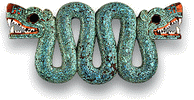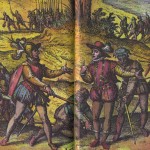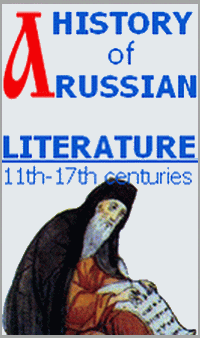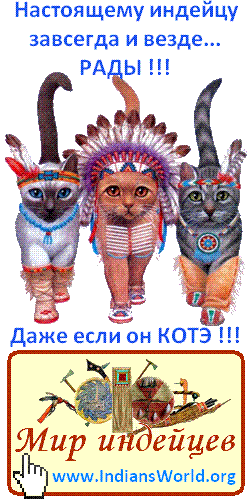CHRISTOPHER COLUMBUS ||| Ch.XIX. LATER VOYAGES
Category: Christopher ColumbusXIX
LATER VOYAGES
Happy, proud days followed Columbus’s return from the first voyage. He was the most famous man in Spain. Riders galloped all over Europe, bringing the news of the Admiral’s great discovery. But one question troubled Columbus all the time. The same question disturbed Ferdinand and Isabella. Was Cibao really Cipango, or Japan?
After all Columbus had not seen the roofs of gold, that Marco Polo had reported. And he had not been able to go past Japan to the mainland of Asia and contact the Grand Khan.
“Let me go back and try it again,” said Columbus. “This time I promise I will get to the Grand Khan. I will bring back an empire for Spain.”
He sailed back to La Navidad. This time he had a fleet of seventeen ships, loaded with fifteen hundred men to colonize the new land. They were the best ships that could be found. ‘ Yet Columbus chose the strongly built little “Nina” for his flagship. She had become his favourite ship.
Tragedy met him at Haiti. There was nothing left of the little colony of La Navidad. The fort was destroyed completely. Not a man of thirty-nine was left alive.
Columbus and his men found Guacanagari hiding in the hills. From him they were able to learn the terrible story of what had happened. The Spaniards of the fort had become real bandits. They had made slaves of the Indians, had raided the villages of Cibao, and robbed the natives of everything they had. They had formed several gangs, fought among themselves for the loot and disturbed the peace of Haiti. The Haitians now knew very well the Spanish sword and the whip. Within a very short time their brutality convinced the Indians that they were not the gods they pretended to be. A local chief who was more independent than his neighbour Guacanagari, assembled his tribes for war. He had attacked the fort at night and killed everybody of the Spanish garrison.
Columbus and his men built another colony in another part of Haiti and named it Hispaniola. Soon ships began travelling between Hispaniola and Spain, bringing more settlers to the new settlement and carrying slaves to Spain. Spanish guns and swords were used quite often.
The Haitians were murdered by the thousands as they defended their villages and gold mines. The Spanish colonizers started their terrible business in the New World. Christopher Columbus, the poor Italian weaver’s son, the explorer, the great navigator, had now become a conqueror, a “conquistador”.
But the other job was still to find China and the Grand Khan. He sailed once again in search of that magic land, taking with him his favourite ship “Nina” and two other caravels. Sailing west, he came to the coast of Cuba. Was this the rich mainland? No, it could not be, for here were only more Indians who did not have any gold.
Columbus sailed south from Cuba and came to the coast of Jamaica. Hundreds of war canoes, filled with shouting Indians, came from the shore to meet the ships. The Spanish cannons fired at them to make a way ashore, for the fleet needed fresh water and food. Then the disappointed Columbus sailed away from the place as soon as he could.
He sailed between Cuba and Jamaica for some time, but he found only more little islands. At one place, just off the coast of Cuba, the sea was filled with tiny islands, hundreds of them. Between these islands the sea was sometimes as clear as drinking water and everything could be seen down on the bottom.
Islands, islands! Was there a way out? He had made a big discovery, but the really big secret still escaped him.
At last he had decided to end his search. He sailed back to the colony of Hispaniola.
Columbus was discouraged. The new colony was costing much money, but there was little profit from it. The mines of Cibao gave very little gold. Impatient letters came from Ferdinand and Isabella with every ship that arrived from Spain.
Columbus became a tyrant. On Haiti, as viceroy and governor, he made Indians his slaves, who built him a rich house. Bartholomew came from Spain to join him, and they both lived in luxury and made much money shipping Indian slaves to Spain.
But the life of the ordinary Spanish settlers was not easy. They fought clouds of mosquitoes and died of malaria. They hated Columbus and his brother. Each ship that went back to Spain carried dozens of complaints.
Columbus was ordered to come back to Spain.
There were crowds to meet him, of course, but this time they were hostile. For they were the relatives of the colonists who had sent letters with complaints about Columbus. They shook their fists at the Admiral and shouted their insults at him. Where was all the gold he had promised to find? Where were all the spices and jewels? Why were Spaniards dying in the jungles while the Admiral and his brother lived like princes?
The king and queen had much the same questions to ask. Columbus gave more promises. Just one more chance, he begged, one more chance to find the main continent of the Indies!
He was given three ships and he sailed away again although he was seriously ill. This time he sailed farther south, down past the equator.
He saw the three peaks of Trinidad. He sailed past Trinidad and sighted the continent of South America, but he thought it was just another island. He explored the Caribbean Sea. Only islands. No Asia. No Cipango. No Grand Khan.
Disappointed, he sailed back to Hispaniola and again took the post of viceroy. Again he lived in luxury while the colonists died of malaria. New complaints went to Spain, there was a threat of a mutiny against Columbus.
An official investigator was sent to the colony by the king and queen. On his orders both brothers Columbus were carried home in chains.
The captain of the ship wanted to take the chains off the Admiral. But Columbus refused. He said he would wear his chains right into the court himself.
Queen Isabella received the Great Navigator and listened to his explanations and requests. He begged for another chance and she gave him five ancient ships and sent him off again, forbidding him to go to the colony of Hispaniola.
He sailed back over the Ocean Sea, so weak and ill that he could hardly stand on his feet. This time he reached the coast of Central America and saile.d up and down it, still thinking it was only a large island.
If he only knew that twenty miles across this thin strip of land was another ocean that could carry him to Asia!
He explored the coast and saw Indians with many gold ornaments. He imagined now that this gold came from the biblical king Solomon’s mines.
That was it, he decided — he was at the gates of Paradise!
But the terrible heat of “Paradise” dried up the ships and they began to leak. The alarmed sailors threatened mutiny.
Where could he go? He was forbidden to land in the Spanish colony of Hispaniola. He managed to navigate the leaky ships to the shallow waters of the southern coast of Cuba. Then he sent a messenger by canoe to Hispaniola, begging to be allowed to enter.
Almost a year had passed before the governor sent help. Columbus and his men saw ships after they had suffered terrible hardships on the Cuban beach. But Columbus was allowed to stay in Hispaniola only long enough for a meal. Then he was immediately taken aboard the next ship leaving for Spain.
Queen Isabella was dead. King Ferdinand listened to Columbus’s stories about “King Solomon’s mines” and “Paradise” and then sent him away. “Keep that madman away from me in the future,” he told his courtiers.
The years passed. Ships made a highway of the Ocean Sea — or the Atlantic, as it was later called.
Columbus was almost forgotten and disgraced. He had neither power nor money. All that remained was his title of Don. He spent his days writing letters to the king. He followed the court wherever it went, trying to restore his good name and fortune.
It was the world of envious and selfish men and more than once had Columbus to defend his honour, power and pride.



